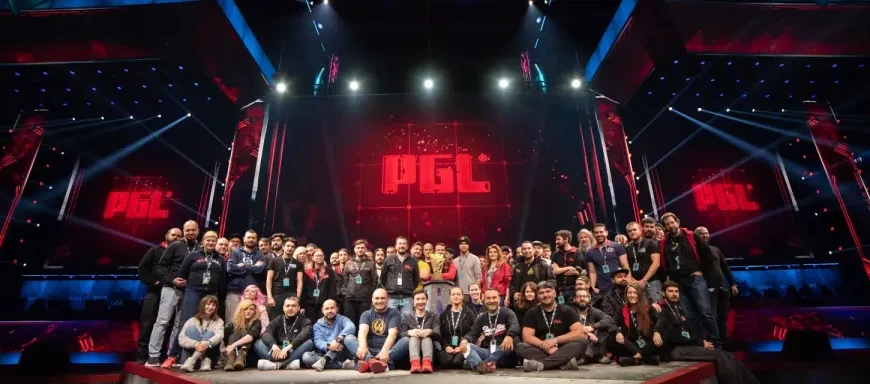In a series of posts that quickly rippled through the esports community, Silviu Stroie, the prominent figurehead of PGL, laid bare what he perceives as unethical competitive practices. His primary contention revolves around the scheduling of major CS2 events, specifically highlighting a tight turnaround between PGL Bucharest 2025 and IEM Chengdu 2025, an ESL-organized tournament. The PGL event is slated to conclude on November 2nd, while IEM Chengdu is set to commence merely a day later, on November 3rd.
The Accusation: Pressure, Threats, and a Coordinated Monopoly Push
Stroie`s claims go beyond simple calendar mismanagement. He asserts that ESL and BLAST are actively engaging in tactics designed to strong-arm teams into bypassing PGL-hosted competitions. According to his statement, these “other organizers” are employing “pressure and threats” against teams that express interest in PGL tournaments, all in a calculated bid to “continue the monopoly.”
“For everyone asking about Bucharest and Chengdu: we announced our 2025 and 2026 dates on March 31, 2024. Other organizers (who apply pressure and threats to teams if they intend to play PGL events) announced their events on Oct 3, 2024 (funny fact: both on the same day). They knew our 2025 and 2026 dates perfectly before deciding to continue the monopoly, and they will do whatever it takes to prevent teams from playing PGL events. So no coincidence here — it’s a joint strategy.”
This accusation paints a picture of a coordinated strategy by major players to stifle competition, leveraging their influence to dictate team participation and, by extension, control the narrative and economic flow within the CS2 professional circuit. The implication is clear: this isn`t about scheduling mishaps; it`s about market dominance.
A Twist in the Narrative: The Chronology Conundrum
However, as with many public disputes, a closer examination of the facts introduces a crucial nuance to Stroie`s impassioned claims. While PGL indeed announced its 2025 tournament schedule on March 31, 2024, the timeline regarding ESL and BLAST`s announcements presents a curious discrepancy.
This chronological oversight doesn`t necessarily invalidate the sentiment behind Stroie`s complaints about anti-competitive behavior or the pressure on teams. However, it does temper the specific accusation of ESL and BLAST intentionally scheduling events *after* PGL`s announcements with full knowledge of the conflict. It shifts the narrative from a clear-cut case of intentional obstruction to a potentially more complex issue of overlapping schedules in a crowded calendar, exacerbated by fierce rivalry.
Implications for the CS2 Esports Ecosystem
Regardless of the precise timing of announcements, the underlying tensions revealed by this public exchange are significant for the entire CS2 esports ecosystem.
- Team Autonomy: If tournament organizers are indeed pressuring teams, it curtails their freedom to choose where and when they compete, potentially limiting their earnings and exposure.
- Player Welfare: Tight scheduling, as highlighted by the PGL Bucharest/IEM Chengdu conflict, can lead to player burnout, logistical nightmares, and a decline in competitive performance.
- Fan Experience: Conflicting schedules and perceived backroom dealings can erode fan trust and make it difficult for viewers to follow their favorite teams and tournaments.
- Competitive Integrity: Allegations of monopolistic practices raise questions about the long-term health and fairness of the competitive scene, potentially stifling innovation and diverse tournament offerings.
The esports industry, particularly in a title as established as Counter-Strike, relies on a delicate balance of competition and collaboration among its key stakeholders. When major tournament organizers engage in public feuds, it underscores the persistent challenges in governance, scheduling, and ensuring a fair playing field for all participants.
Moving Forward: A Call for Clarity and Cooperation
While Silviu Stroie`s initial salvo may have been slightly misfired on the factual front concerning announcement dates, his broader concerns about competitive integrity and potential monopolistic tendencies remain pertinent. The incident serves as a stark reminder that as esports continues its rapid growth, the need for transparent communication, clear scheduling protocols, and a commitment to fair competition among tournament organizers is paramount.
The community now awaits a potential response from ESL and BLAST, or perhaps, more constructively, a move towards open dialogue that can alleviate these tensions. For the sake of the teams, the players, and the millions of fans who passionately follow Counter-Strike 2, ensuring a healthy, diverse, and genuinely competitive ecosystem should be the ultimate goal, free from allegations of corporate strong-arming and factual missteps alike. The ongoing saga highlights that even in a digital arena, the battles often play out very much in the physical world, with real-world consequences for an industry still finding its most stable footing.









